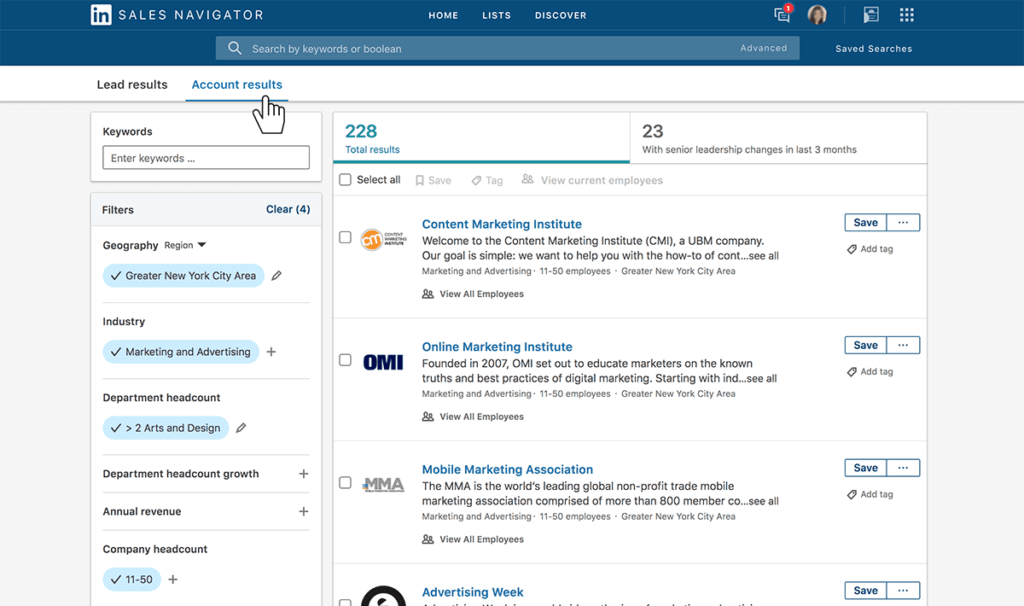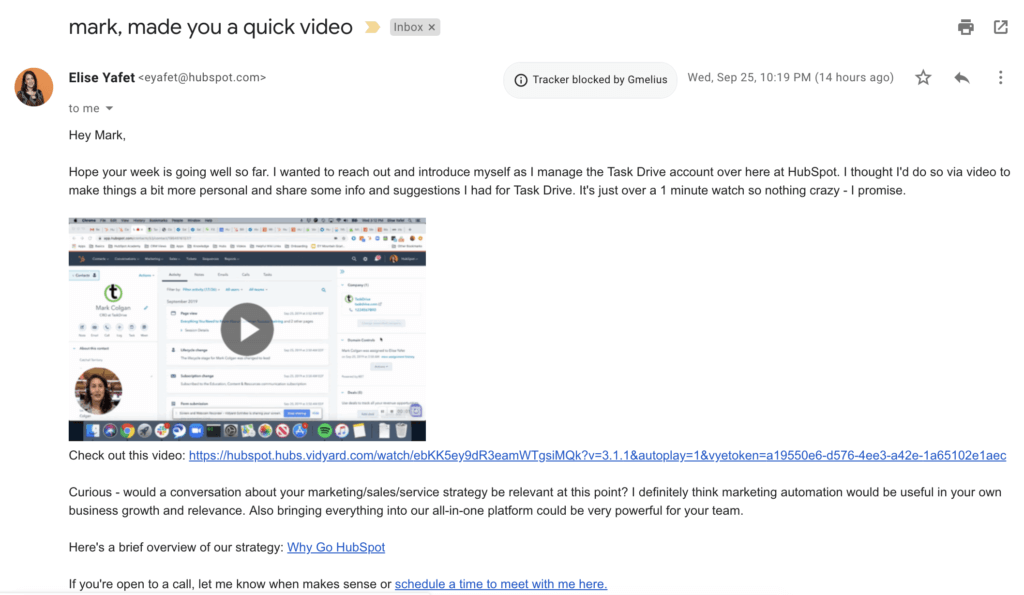“A.B.C – Always be closing.” The motivational phrase from Glengarry Glen Ross that most sales professionals know. Of course, the closing can be pretty hard when your sales teams are not getting the prospects they need. Or if they’re not equipped with the necessary sales development representative skills.
For example, if you are bad at prospecting, you are bad at closing. Hiring Sales Development Representatives (SDRs) with strong core competencies is therefore very important for any sales team to succeed. However, simply having only sales development skills will not guarantee great prospects. Your SDRs also need great personality traits to form the foundation for top SDR skills.
Here are the 10 proven sales development representative skills and traits you need to look for in a strong candidate.
5 Proven Sales Development Rep Traits
Skills can be taught, but traits are not easy to develop. During your hiring process, take note of these five proven traits of successful Sales Development Representatives to help you find the right people for your sales team.
#1 – Coachability
For a sales rep to be great at what they do, they need to be coachable. You need to evaluate if your SDR candidate possesses this trait, or if ego stands in the way of the candidate getting any form of coaching.
The right candidate will study your products or services. They will continuously refine their sales development representative skills to be great at what they do. Be it improving their call techniques or writing cold emails, they will be proactive in getting feedback from their managers to improve.
Q: What the most recent thing you’ve learned about selling?
#2 – Empathy
Empathy is at the heart of selling. Emotional intelligence helps sales reps really understand the objections they face when speaking with prospects. Your new hires must possess strong empathy and emotional intelligence to succeed in their roles.
Empathy helps your SDRs understand your prospects when it comes to their reactions to your company’s products or services. They will be able to pick up the subtle cues that prospects are giving whether it’s through email responses, tone of voice, or facial and body language.
Q: Tell me about your worst sales call ever?
#3 – Motivation
Just as your new SDRs should be coachable, they should also be naturally motivated to learn and improve in their careers. This position is often just the starting point to progress in sales. You are looking for someone who is self-motivated and hungry for success — ideally with a very big appetite for knowledge and numbers. The ideal SDR candidate will be constantly devouring content to become the best at what they do at any given free moment in their time.
Q: What is your main motivation as a sales professional?
#4 – Grit
Going through 60 plus dials a day and having prospects say “no” most of the time can be quite draining. It’s definitely not an easy job in sales. So you need reps who possess the grit and determination to power through objections, rejections, and obstacles.
Possessing grit means that they are ready to kick down doors and write messages upon messages just to achieve your sales targets. With the previous traits mentioned, they are natural candidates who are prepared to hustle hard. Your top candidates are those who are persistent, punctual, and able to “show up” at work. They will keep grinding, smiling, and communicating with prospects until they win.
Q: How do you deal with rejection from a prospect?
#5 – Resourcefulness
Depending on the market you are in, standing out against the competition can be very hard. For your sales development strategy to work, you need SDRs who are creative in their approach. Be it cold email outreach, video prospecting, or calls — becoming as personalized as possible in the approach will help your sales team differentiate itself from the others.
Your SDRs will be faced with different scenarios in prospecting. By possessing the resourcefulness to solve problems creatively in their daily activities, they will be able to provide an edge for your prospecting. A simple example would be an SDR studying a prospect’s profile on LinkedIn, taking note of the recent article he or she liked, then bringing it up in any outreach message sent to establish a connection.
5 Proven Sales Development Representative Skills
Now that you have the traits of a strong candidate, let us take a look at the sales development representative skills they should possess so they can hit the ground running when it comes to your sales development strategy.
#1 – Time Management
For SDRs to perform at their peak, they need to be very organized. They are typically familiar with what exists in the pipeline and where their leads are. They should also have a great sense of time management because they need to set reminders on when to follow up with leads and how they should go about doing it. If your candidate blocks out time slots to do specific sales activities in a day, then you know you are interviewing someone suitable for the SDR role.
Tip: Keep a lookout for candidates who carve out a Power Hour in their daily activities. A Power Hour is one hour in a day when all sales teams are entirely focused on contacting the best prospects.
The best SDRs are always on top of things. This is how you can ensure your prospecting will also be at the best that it can be with such SDRs on your sales team.
Q: What does your sales process look like?
#2 – Active Listening
This is a very important skill in prospecting, but not many SDRs can do this well. Your candidates must be able to qualify prospects during conversations to understand if they could benefit from your product or service. Going through a qualification checklist is not enough — an SDR must focus on the conversation to gather additional nuggets of information that you would only get from actively listening to a prospect’s phrases or words.
There will be moments where opportunities to dig deeper will present themselves, but an SDR must be able to recognize that and grab it when they appear. They must be present and have real conversations with prospects.
Q: “Does this make sense?”
#3 – Great Communication Skills
While active listening is very crucial, having great communication skills (both verbal and written) is also extremely vital to the success of your rep. You want SDRs who are able to articulate their ideas clearly and able to respond to questions well on paper and face-to-face.
The sales development representative position is definitely not for someone who is unable to formulate succinct answers and provides rambling answers. Having a lot of filler words in their sentences is also a big red flag to take note of.
Tip: Test a candidate by asking them to share a new concept they learned recently. If they are not able to share this clearly with you, they probably are not a good fit for what you need in an SDR role.
#4 – Research Skills
Having great lead research skills is also vital to an SDR’s success at your company. For you to get quality lead research, an SDR must be able to provide highly-targeted prospects that are of great potential to your sales team.

Not every lead will exist in a database, so he or she will need to find the best lead sources and database for lead generation to get the best prospects. Some popular tools that your SDR should be proficient with are LinkedIn Sales Navigator, FindThatLead, Seamless.ai, Google, and so much more. It all depends on the verticals that you need help with.
Q: What is the one thing you do for account executives to make the sales easier to close?
#5 – Ability to Conduct Highly Customized Outreach
Anyone can buy a list or build a list and simply burn leads up through general email outreach campaigns or cold calling with standard scripts. The end result though? No wins.
SDRs today have to strive for quality instead of quantity simply because your competition is most probably doing the same thing.
How do you stand out to make sure prospects listen?
Highly customized outreach. You need to know what prospects love, what content they interact with, maybe their favorite color, their role models, or perhaps the events they have been to. When an SDR is able to create that deep level of personalization during their outreach campaigns, you know that these prospects will respond.

Your sales reps should be able to dive into a prospect’s LinkedIn profile, business website, maybe even his or her interactions with your company, and create an outreach campaign that covers those touchpoints in a natural manner so prospects do not find them forced in the outreach.
If your candidate has experience or the skill sets to perform highly customized outreach, you know you have a winner on your hands.
Hire SDRs Who Act Out of Love, not Fear
When you find sales development representatives who possess the proven skills and traits listed above, you will also need to check if they embody one core value that is so important in sales development today.
Do they act out of love and not fear?
If they tackle sales activities with passion and love for the process, that is a win.
If they engage and offer solutions they know will truly benefit their prospects, that is a win.
If they create value in everything they do, acting out of love for the role and not out of fear simply to get things done — you have a strong sales development representative to hire.
Q: Why do you want to become part of our team?



